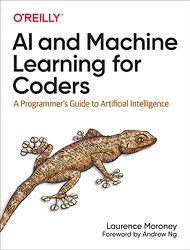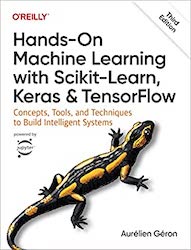Scoreboard · Submit Flags
Presentation: Risks of AI PDF · KEY · PPT
Presentation: AI Workshop Summary PDF · KEY · PPT
Whole Course with Lectures
Understanding Prompts
ML 130: Prompt Injection (25 pts + 60 extra)ML 131: Generating Python Code with Bard (40 pts extra)
Violent Python Challenges (extra)
Google Learning
GL_Badges: Google Learning (30 pts + 60 or more extra)Security Risks
ML 150: OWASP Machine Learning Security Top Ten (15 pts)ML 151: OWASP Top 10 for LLM Applications (15 pts)
ML 152: Microsoft Copilot Security (15 pts)
Awareness: Demonstrating Capabilities
ML 100: Machine Learning with TensorFlow (20 pts + 45 extra)ML 101: Computer Vision (10 pts)
ML 102: Breaking a CAPTCHA (10 pts)
ML 103: Deblurring Images (10 pts + 30 extra)
Technical: Inner Components
ML 104: Analyzing Input Data (20 pts)ML 105: Classification (15 pts + 10 extra)
ML 106: Data Poisoning (10 pts)
ML 112: Support Vector Machines (40 pts extra)
ML 113: Decision Trees (15 pts extra)
ML 114: Ensemble Learning and Random Forests (15 pts extra)
ML 115: Dimensionality Reduction (20 pts extra)
ML 116: k-Means Clustering (30 pts extra)
Attacks
ML 107: Evasion Attack with SecML (15 pts + 25 extra)ML 108: Evasion Attack on MNIST dataset (20 pts + 20 extra)
ML 109: Poisoning Labels with SecML (20 pts + 10 extra)
ML 110: Poisoning by Gradients (15 pts + 15 extra)
ML 111: Poisoning the MNIST dataset (20 pts + 20 extra)
Defenses
ML 140: Deep Neural Rejection (45 pts extra)Large Language Models
ML 120: Bloom LLM (15 pts + 15 extra)ML 121: Prompt Engineering Concepts (20 pts)
ML 122: Comparing LLMs on Colab (10 pts + 10 extra)
ML 123: Running Llama 3 Locally (15 pts extra)
ML 124: Evaluating an LLM with Trulens (15 pts extra)
ML 126: Building RAGs (15 pts extra)
ML 127: Encoding Text with BERT (10 pts extra)
ML 128: Using AnythingLLM to Embed Custom Data (10 pts extra)
ML 125:
Jupyter Notebook on a Mac M1 (10 pts extra)
ML 160:
GitHub Copilot (15 pts extra)

